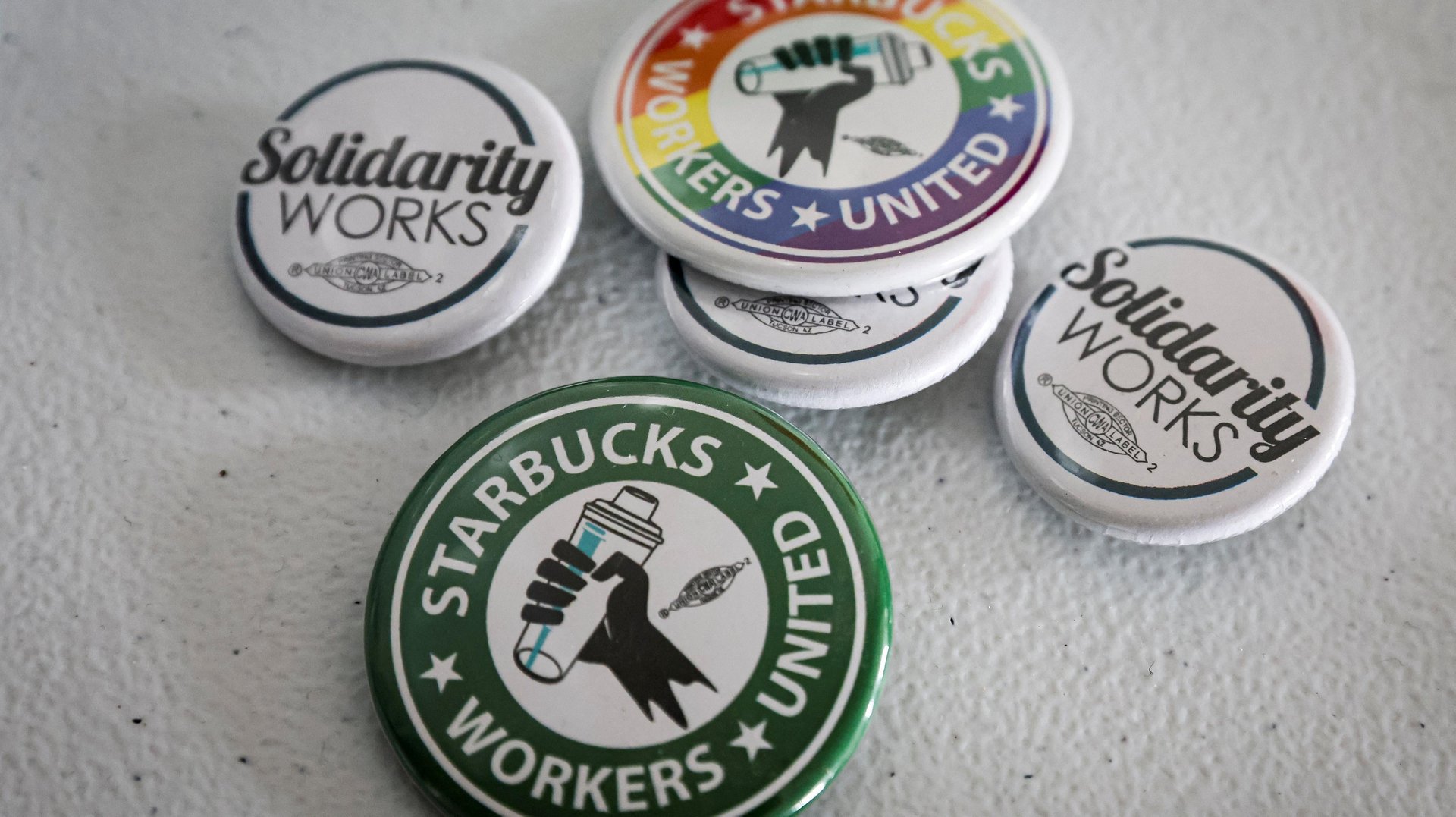Starbucks wants to stop mail-in voting for union elections
The request comes as more than 220 stores have voted to unionize across the US.

Starbucks is requesting that the National Labor Relations Board (NRLB) suspend mail-in ballots for union elections, accusing it of elections misconduct. Citing an NRLB employee, Starbucks said, in a statement, that board members acted improperly during the mail-in voting process in a store in the Kansas City area, and that similar misconduct has likely occurred in other elections. Starbucks said the person who disclosed the information showed documents outlining specifics on how to tip the scales during the voting process to favor the union in the Kansas City-area store.
More than 220 locations out of 9,000 stores in the US have voted to unionize, and another 34 have votes scheduled.
It’s not clear if mail-in ballots are more likely lead to a pro-union vote than in-person voting. Ruth Milkman, a professor at the City University of New York’s School of Labor and Urban Studies, said that some people argue that mail-in is less subject to employer intimidation, but there isn’t research confirming this for certain. “The union tends to prefer mail ballots because it seems the fairest way for the highest number of workers to be able to participate in voting,” a representative from Workers United told Quartz. “[A]t most Starbucks stores, only about one third or fewer workers are scheduled to work on a given day. For an in-person vote, workers who are on the clock would be given on-the-clock time to vote, but two two-thirds or more of workers would have to find their way to the voting booth on their own time (for many, this would be impossible because of second jobs or family or school obligations).”
The request to suspend mail-in ballots is, labor advocates say, the latest union-busting tactic intended to discourage stores from organizing, following moves including raising pay for non-union employees and shuttering unionized stores.
Starbucks CEO Howard Schultz, who returned to helm the company as calls for unions grew, has countered union efforts, saying it is best positioned to improve working conditions from the top down, rather than through collective bargaining. The coffee chain has long positioned itself as a progressive company and a leader in benefits.
“We are listening and learning from the partners in these stores as we always do across the country,” said a Starbucks spokesperson in a statement to Quartz. “From the beginning, we’ve been clear in our belief that we are better together as partners, without a union between us, and that conviction has not changed. We respect our partners’ right to organize and are committed to following the NLRB process.”
The clash between management and employees at Starbucks
The workplace has evolved, and that is perhaps mostly evident in the foodservice industry, which largely employs young people. The growing labor movement and the perks that Starbucks baristas care about—like Spotify and mental health resources—illustrate how younger workers view the workplace differently than previous generations. More specifically, they feel that current working conditions can be improved on, and should be better suited to their needs.
The boost in unionization at Starbucks and other places like REI and Amazon is driven by college-educated workers who have felt that the traditional pathway of going to college, working hard, and enjoying a comfortable lifestyle has broken down, and see unions as a way to improve their situation.
